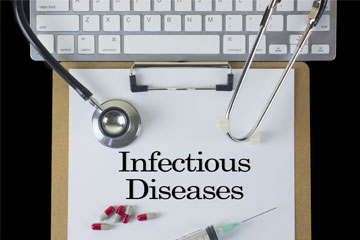Infectious diseases are a threat to human race. Infectious diseases are disorders caused by organisms such as bacteria, viruses, fungi or parasites and can be transmitted from person to person or from insects, animals, birds and sometimes through contaminated food or water. Every infectious disease has different symptoms and if not treated properly it can worsen the person’s health and even lead to death. Some infections may respond well to some home remedies, but some will need medication or even hospitalization if it is life threatening, like Covid-19. As the saying goes “prevention is better than cure”. Here some tips to reduce your risk of infectious disease:
- Wash your Hands: Microbes live on surfaces and can stay there for a few minutes to several months, depending on the environment and pathogen. Therefore washing your hands regularly is important to limit the exposure of the pathogen to your mouth, eyes, or nose and the spread of the infectious disease. The Centers for Disease Control and Prevention recommends washing your hands thoroughly wash with soap and water for at least 20 seconds. If you do not have access to water then you can use an alcohol-based hand sanitizer or wipes.
- Always Cover your Mouth: Along with personal cleanliness, it is important to make it a habit to cover your mouth whenever you cough or sneeze. When any individual coughs or sneezes, droplets that fall on the ground or surface can quickly infect another person. It can also cause airborne transmission where tiny aerosolized particles travel for longer distances to infect others. If you have upper respiratory tract infection then the risk of spreading the disease is higher because the virus or bacteria resides in the nose and throat.
- Do Not Share Personal Items: Personal items such as a toothbrush, razor, towels, handkerchiefs, etc should not be shared with anyone else because these items can be a source of infectious pathogens, including bacteria, viruses, fungi, and parasites. Even though pathogens have lower risk of transmission on fomites, there are some that can potentially spread this way like hand, foot, and mouth disease, head lice, influenza, respiratory syncytial virus, etc. Make sure to teach your kids not to put toys or any other object in their mouth.
- Wear a Face Mask: With the outbreak of COVID 19, face masks have become a part of life. Using masks helps prevent the spread of the coronavirus. Face masks also help prevent diseases like influenza, flu etc. The practice of wearing a face mask should be adhered to in any situation when you have respiratory symptoms
- Get Vaccinated: The human body’s immune system is designed to have a memory of earlier infections which helps the body to respond quickly in the form of antibodies, B- cells, T- cells. Getting vaccinated will protect you and those around you from infection and illness. Vaccinations are provided for children and for adults on a recommended schedule.
- Ensure Safe Travel: There is a higher chances of getting infectious diseases while travelling. Here are some quick tips to reduce the risk of getting infected while travelling:
- Make sure that you drink clean water. If the water in your destination is questionable, use bottled water for drinking, brushing etc. Avoid using ice cubes as they may be contaminated.
- Do not eat raw vegetables or fruit; if you do, make sure to peel the outer skin completely.
- Do not eat raw or undercooked meat: Eating food items that are cooked is completely safe but undercooked meat like steak or raw food like ceviche can be contaminated.
- Prevent Animal Borne Diseases: Infections for animals can easily spread. So if you have pets at home, make sure to get regular check-ups and timely vaccines. Make your home “unfriendly” to rodents by eliminating areas where they could hide or build nests. Use animal-proof trash cans to avoid attracting wildlife, and teach small children that wild animals should never be approached or touched.
- Be Careful in Hospitals: Hospitals house people with many diseases and they can become a breeding ground for infections. Here are some safety measures that you should take if you need to go to a hospital:
- Check the rating and cleanliness and safety measures in the hospital online
- Try to get a private room
- Use germ filtering mask in the hospital
- Use alcohol based wipes or sanitizer or hand wash frequently.
- Never walk barefoot.
Most infectious diseases have only minor complications but some infections can become life- threatening. So take the necessary steps to stay safe.
